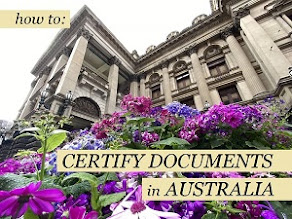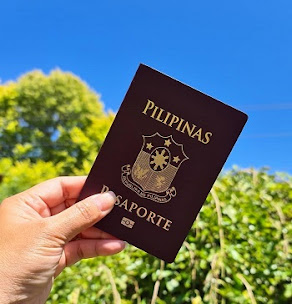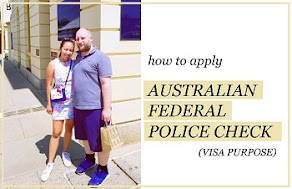Australia has some of the strictest customs rules in the world.
Many of the restrictions around what can be brought into Australia are about protecting the country's biodiversity.
Even what we thought a harmless airline food has found some people on the wrong side of Australian customs laws.
Whether you are coming to Australia for tourism purposes, visiting family, or business trips, you should know the things you must declare and not carry when entering the Australian border.
Incoming Passenger Card
Travelers entering Australia fill out what's known as an incoming passenger card, which asks about the types of items a person is bringing into the country with them. You must fill up the form truthfully, and in good faith to avoid any sanctions.
 |
| Incoming Passenger Card - sample |
By declaring items, passengers let authorities know what items of interest they have with them.
But with some of the strictest customs rules in the world, what exactly can you bring into Australia, and what is off the cards?
Understanding the questions in your Incoming Passenger Card
Although the questions are straightforward, many travelers still have a hard time understanding the context of each question. Based on my experience as a frequent traveler in and out of Australia, and on current border security regulations, here’s our practical guide:
The questions in the Incoming Passenger Card are:
1. Goods that may be prohibited or subject to restrictions, such as medicines, steroids, illegal pornography, firearms, weapons, or illicit drugs?
• If you don’t need these items, best to not bring them to Australia. However, if you have medications that you need (for your asthma, allergies, diabetes, etc.) you MUST DECLARE them. It is also helpful if you carry your medical certificate or prescription-related for these medications.
• Do not bring illegal drugs such as cocaine, met, etc. even for personal use. You will be prosecuted by law.
• Australia has strict gun/firearms laws around the country. Do not bring your firearms. You don’t need it here.
@blair.villanueva#australiatravel#phtiktok#philippinestiktok#pinoytiktok#tiktokph#tiktokindia#tiktok#australia#tiktokphilippines#tiktoker#travel#traveller♬ original sound - Blair Villanueva
2. More than 2250ml of alcoholic beverages or 25 cigarettes or 25 grams of tobacco products?
• Australia has one of the tougher laws for alcoholic and tobacco importation. You MUST DECLARE it if you will carry more than the allowable limits.
• If you carry a sampler size of alcohol that you’ve bought from the duty-free shops or brought a bottle of wine as a gift for your family, you MUST DECLARE IT.
@blair.villanueva#tiktoker#travelguide#tiktokphil#philippinestiktok#tiktokphilippines#phtiktok#travelaustralia#safeaustralia#australia#bordersecurity#fyp♬ original sound - Blair Villanueva
3. Goods obtained overseas or purchased duty and/or tax-free in Australia with a combined total price of more than AUD$ 900, including gifts?
• This includes any item such as your luxury bags you’ve got from your recent Dubai trip, the Rolex watch that was gifted by your friend overseas, or even branded clothes for your family. Make sure that you’ve got the receipts and calculate the total amount.
 |
| must declare jewelry purchase overseas amounting to over AUD$900 |
4. Goods/samples for business/commercial use?
• This is straightforward and ideal for business travelers.
5. AUD$ 10,000 or more in Australian or foreign currency equivalent? NOTE: If a customs or police officer asks, you must report traveler cheques, other kinds of cheques, money orders, or other bearer negotiable instruments of any amount.
• This question is necessary to prevent importing foreign currency Australia’s Money Laundering Law. You can carry cash/coins with you provided that it doesn’t exceed AUD$10,000. Use your debit/credit cards or withdraw from ATM machines or banks whenever you needed some funds.
6. Meat, poultry, fish, seafood, eggs, dairy, fruit, or vegetables?
• This includes any processed meat such as tocinos, longganisa, hotdogs, etc. sardines, dried fruits, and vegetables, especially those that are not commercially packed. Recently, the Australian Border Security tightened the restrictions on importing any food with pork meat, including processed meat. You MUST DECLARE if you are bringing them to Australia.
• Dried fruits and vegetables in commercially sealed packaging, including sardines in sealed glass jars, or in a tin can MUST DECLARE as well.
• Those chocolates or nuts that you’ve got for free from the airline, must also DECLARE.
• Australia has one of the countries with tougher biosecurity laws, and as a traveler, you must abide by the law.
@blair.villanueva#tiktoker#tiktokphilippines#australia#tiktokindia#tiktokph#pinoytiktok#philippinestiktok#phtiktok#australiatravel#riceislife#rice#travel♬ original sound - Blair Villanueva
7. Grains, seeds, bulbs, straw, nuts, plants, parts of plants, traditional medicines or herbs, wooden articles?
• You must not bring any of the following above. If you have items you bought during your vacation to Bali or Boracay that are made from parts of plants and wood, such as textiles made of natural fibers, bags, and shoes made of abaca fibers, or even fashion accessories made of wood or plant, you MUST DECLARE them.
@blair.villanueva#tiktok#tiktokindia#tiktokph#pinoytiktok#philippinestiktok#tiktokphil#phtiktok#australia#travelguide#australiatravel#bordersecurity#fyp♬ original sound - Blair Villanueva
8. Animals, parts of animals, animal products including equipment, pet food, eggs, biologicals, specimen, birds, fish, insects, shells, and bee products?
• This is very straightforward. This is to protect Australia’s biosecurity.
• If you have souvenir shells from your recent Palawan trip, you MUST DECLARE them. Or better not bring them to Australia to avoid any hassle during your entry.
@blair.villanueva#travel#australia#tiktok#tiktokindia#tiktokphilippines#travelaustralia#phtiktok#bugs#australiatravel#phtiktok#travelguide#australiatiktok♬ original sound - Blair Villanueva
9. Soil, items with soil attached or used in freshwater areas e.g sports/recreational equipment, shoes?
• If you have swimming shoes, make sure that you let them dry before packing them in your luggage, but still, you need to DECLARE them.
10. Have you been in contact with farms, farm animals, wilderness areas or freshwater streams/lakes, etc. in the past 30 days?
• This is very straightforward. This is to protect Australia’s biosecurity. Any small particles attached to your article of clothing or equipment during your farm or wildlife trips could carry pathogens that might be harmful to Australia’s biodiversity. You MUST DECLARE if you had such an activity.
11. Were you in Africa, South/Central America, or the Caribbean in the last 6 days?
• Similar to item #10, you MUST DECLARE if you’ve traveled to these areas. Recently, Indonesia was also included in the list, due to the recent spread of swine flu disease.
If you are not certain about the items you have, you MUST tick YES on the form, DECLARE them, and let the custom officer decide if they will let you have them or not.
If you were subjected to random checks and found out that you failed to declare some items (either you forgot about them, or you tried to hide them deliberately), you will be subjected to a fine, or worst penalized by law (even jail time for worst cases).
In many cases, officers return declared goods once they have inspected them.
Some items, such as wooden carvings, may require treatment to make them safe, and some items are not permitted to enter Australia at all.
If officers seize these items, they may be exported or destroyed.
There are also designated bins at airport terminals that arrivals can use to dispose of items they would prefer not to claim.
Not knowing anything, being sorry, or even pretending not to speak English is not a valid ‘hall pass’ in Australia’s Border Security.
The Incoming Passenger card is a legal, and record document. Remember to fill up both sides of the form truthfully. Any inconsistency of your information or declared items can lead fine (maximum of AUD$300,000) to suspension of your visa, or deportation.


























Ang helpful and informative ng blog na ito para sa mga nagbabalak pumunta ng Australia. Ang dami kong natutunan while reading this. Thanks po.
ReplyDeleteThank you for sharing ms blair
ReplyDeleteWow, that's really strict. I've heard stories about bananas from the airplane brought out will put you into some kind of trouble and it happened to some friends but this is the first time i got to know about souvenir items (bags, shoes) falling into those category can put you into trouble as well if not declared. it helps to now the rules.
ReplyDeleteYes, that is true. Very strict but it makes sense and understandable. Australia is one of those who have tougher border security measures and have strict laws to protect their biosecurity, Making Australia as one of the safest to live in. Our agriculture and livestock industry are a billion-dollar industry, we don't have foot-and-mouth disease, or even tuberculosis.
DeleteThank you for this guide. This is very helpful, especially for those who plan to visit australia soon. Can't be held up in the jain when you haven't even exited the airport!
ReplyDeleteOooh, no wonder my boss didn't buy too many "pasalubongs" when he came here for a visit. But I appreciate those guidelines, tbh, esp on the tobacco and drugs/meds...
ReplyDeletebringing items from Australia and going out of the country is not an issue. Only when you are travelling to Australia.
DeleteAng strict pala customs nila dyan, buti may guide ka na ganito sa mga balak pumunta sa AUS. :)
ReplyDeleteYes, and as a resident, I started to understand and appreciate why Australia have very strict customs and immigration law.
Delete